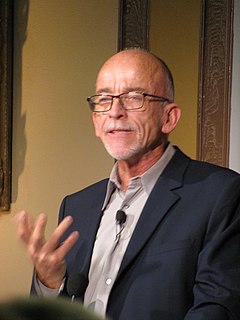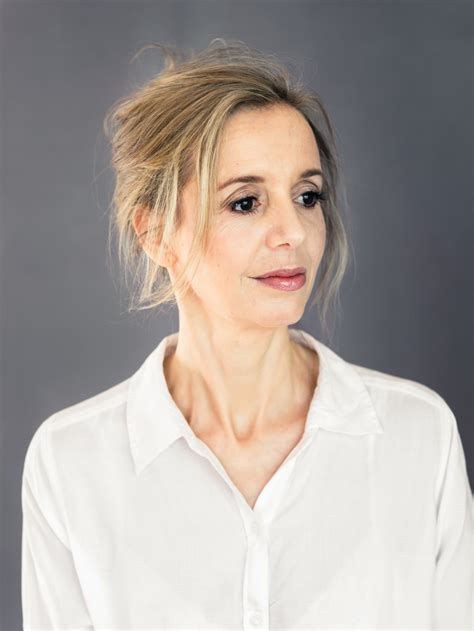A Quote by Mark Nepo
Love and grief enable us to feel how we're all at heart the same. In love and grief, which is always very personal, the distinctions that separate us melt away.
Related Quotes
Grief causes you to leave yourself. You step outside your narrow little pelt. And you can’t feel grief unless you’ve had love before it - grief is the final outcome of love, because it’s love lost. […] It’s the cycle of love completed: to love, to lose, to feel grief, to leave, and then to love again. Grief is the awareness that you will have to be alone, and there is nothing beyond that because being alone is the ultimate final destiny of each individual living creature. That’s what death is, the great loneliness.
grief is a house where the chairs have forgotten how to hold us the mirrors how to reflect us the walls how to contain us grief is a house that disappears each time someone knocks at the door or rings the bell a house that blows into the air at the slightest gust that buries itself deep in the ground while everyone is sleeping grief is a house where no on can protect you where the younger sister will grow older than the older one where the doors no longer let you in or out
Grief does not seem to me to be a choice. Whether or not you think grief has value, you will lose what matters to you. The world will break your heart. So I think we’d better look at what grief might offer us. It’s like what Rilke says about self-doubt: it is not going to go away, and therefore you need to think about how it might become your ally.
Grief, unresisted, is grace. It doesn't mean it doesn't hurt anymore, it doesn't mean it doesn't rip your heart out....In great grief, there's an incredible love in it. In love there's a tinge of bitter. In true love. My teacher used to say 'all love is bittersweet'. All things experienced fully, reveal their opposite.
Real grief is not healed by time... if time does anything, it deepens our grief. The longer we live, the more fully we become aware of who she was for us, and the more intimately we experience what her love meant for us. Real, deep love is, as you know, very unobtrusive, seemingly easy and obvious, and so present that we take it for granted. Therefore, it is only in retrospect - or better, in memory - that we fully realize its power and depth. Yes, indeed, love often makes itself visible in pain.
I love you like a river that understands that it must learn to flow differently over waterfalls and to rest in the shallows. I love you because we are all born in the same place, at the same source, which keeps us provided with a constant supply of water. And so, when we feel weak, all we have to do is wait a little. The spring returns, and the winter snows melt and fill us with new energy.
The heart that loves must one day grieve. Love and grief are the Goddess's twined gifts. Let the pain in, let it open your heart to compassion. Let me help you bear your grief and then may your heart ease and open to greater love. May the love that flows eternally through the universe embrace and comfort you. p.85
Grief is neither a disorder nor a healing process; it is a sign of health itself, a whole and natural gesture of love. Nor must we see grief as a step toward something better. No matter how much it hurts-and it may be the greatest pain in life-grief can be an end in itself, a pure expression of love.
How much do you love me?' and "Who's in charge?" ....these two questions of LOVE and CONTROL undo us ALL, trip us up and cause war, grief, and suffering. People follow different paths, straight or crooked, according to their temperament, depending on which they consider best, or most appropriate -- and all reach You, just as rivers enter the ocean.
One of the difficulties with grief research is that it risks making certain kinds of grief seem normal and others abnormal - and of course having a sense of the contours of grief is, I think, truly useful, one has to remember it's not a science, it's an individual reckoning, which science is just trying to help us describe.







































